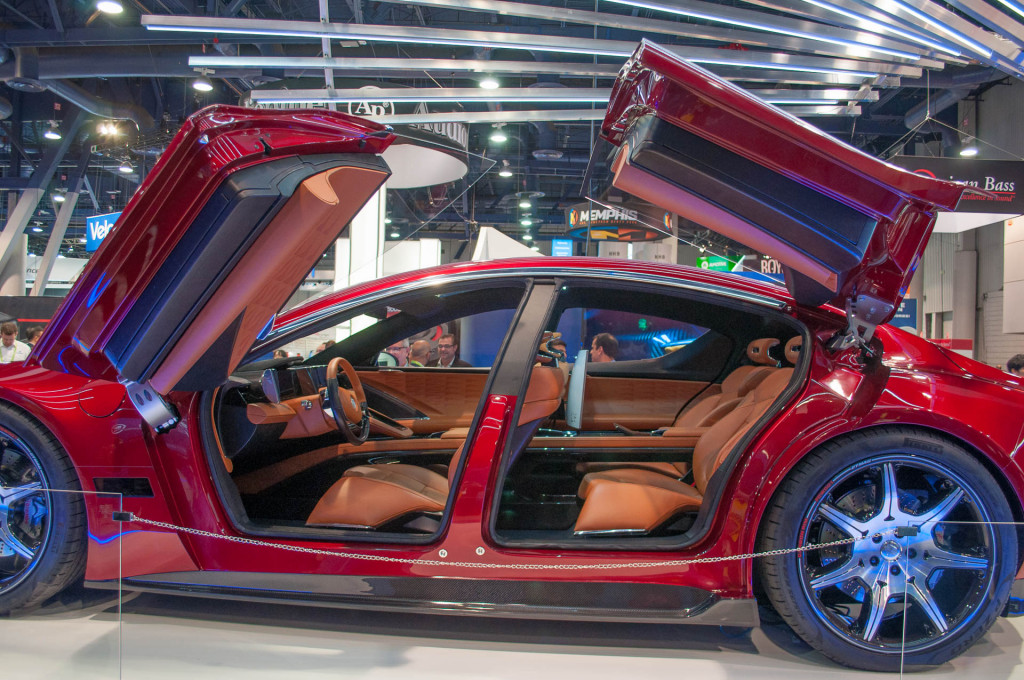Which brand's electric cars won't get a tax credit after next year?
Which electric car is in extremely short supply?
This is our look back at the Week In Reverse—right here at Green Car Reports—for the week ending July 13, 2018.
Friday, we listed the best deals on green cars for July, for readers who are out shopping for a car this weekend.
We also learned about plans for a new electric automaker with a historic name.

Pininifarina PF0 design sketch
Thursday, we reported that Tesla had passed the dark-magic number of 200,000 sales in the United States. Once each automaker crosses that threshold, tax credits begin to wind down for its buyers. It likely will amount to a price increase for buyers.
Buyers in Ontario, Canada also lost even more generous tax credits on electric cars, funded by a cap and trade program that the new Conservative provincial government canceled.

2017 Volkswagen e-Golf, first drive, New York City, April 2017
Wednesday, we heard from our partners at CarsDirect, that the Volkswagen e-Golf is in extremely short supply nationwide. Buyers who want one should start looking.
We also learned that at least one financial analysis company thinks oil prices will surpass those in 2008 that gave rise to electric cars.

Fisker EMotion
Tuesday, we revealed oil industry interests sent a letter to Congress to lobby against a carbon tax that hasn't even been proposed.
And we heard from Henrik Fisker—yes, that Fisker. He says his next car will debut with solid-state batteries in 2020, three years earlier than expected.
![EPA administrator Scott Pruitt [photo from 2014] EPA administrator Scott Pruitt [photo from 2014]](https://images.hgmsites.net/lrg/oklahoma-attorney-general-scott-pruitt-2014_100584650_l.jpg)
EPA administrator Scott Pruitt [photo from 2014]
Monday, we learned that former EPA Administrator Scott Pruitt left a poison pill for the agency by giving polluting "glider" trucks a two-year reprieve from scheduled limitations.
Tesla also announced it would begin building a final assembly plant in Shanghai to produce up to 500,000 of its cars annually for the Chinese and other Asian markets.












